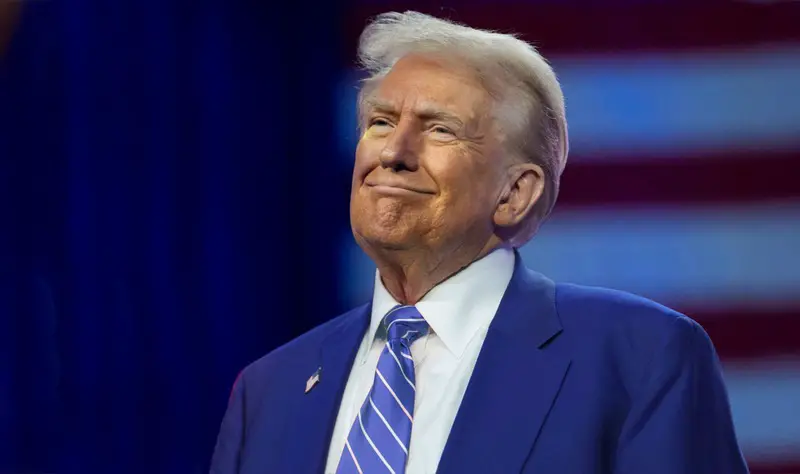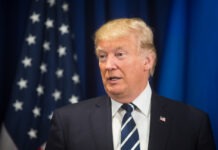President Donald Trump has nominated Dr. Casey Means, a wellness influencer and best-selling author, to serve as the next U.S. Surgeon General. The nomination comes after Trump withdrew his initial pick, former Fox News contributor Dr. Janette Nesheiwat, whose nomination faced scrutiny over misrepresented medical credentials.
Trump announced the switch on his Truth Social platform, writing that “Casey has impeccable ‘MAHA’ credentials, and will work closely with our wonderful Secretary of Health and Human Services, Robert F. Kennedy, Jr., to ensure a successful implementation of our Agenda in order to reverse the Chronic Disease Epidemic, and ensure Great Health, in the future, for ALL Americans.”
Means has emerged as a prominent figure in the MAHA movement over the past year alongside her brother Calley Means, who serves as an advisor to Secretary Kennedy. The siblings gained prominence following the publication of their book “Good Energy,” which became a New York Times bestseller, and through their frequent appearances on podcasts and other media platforms.
A Stanford Medical School graduate, Means initially pursued a surgical residency at Oregon Health & Science University but left the program before completion. She has an inactive medical license. According to her public statements, she became disillusioned with traditional medicine’s approach to chronic illness, believing it failed to adequately address root causes such as diet and lifestyle factors.
Following her departure from traditional medicine, Means co-founded Levels, a health technology company that offers consumers continuous glucose monitors and an app to track their blood sugar levels. The company markets itself as a tool for helping people make better dietary and lifestyle choices to improve their metabolic health.
Both Casey and Calley Means have been vocal critics of the pharmaceutical and food industries, frequently discussing what they view as systemic problems in American healthcare. Casey Means has expressed concerns about certain vaccines and immunization schedules, as well as what she has described as corruption at the Food and Drug Administration.
The surgeon general nomination change comes as part of a broader pattern within the Trump administration. In March, the White House withdrew the nomination of former Rep. Dave Weldon for CDC director when it became clear he lacked sufficient Senate support due to past controversial comments about vaccines.
Nesheiwat’s nomination was withdrawn just one day before her scheduled Senate confirmation hearing. Questions about her credentials had intensified after independent journalist Anthony Clark revealed discrepancies in how she had represented her education. While Nesheiwat had listed an M.D. degree from the University of Arkansas on her LinkedIn profile, records showed she actually received her medical degree from American University of the Caribbean in St. Maarten.
Conservative activist Laura Loomer, who has reportedly influenced several Trump administration personnel decisions, had also publicly criticized Nesheiwat for her support of COVID-19 vaccines during the pandemic. In a 2021 opinion piece, Nesheiwat had called the vaccine “a gift from God.”
Despite the withdrawal of her surgeon general nomination, Nesheiwat appears set to remain within the administration. In his announcement, Trump indicated that she would work “in another capacity” at HHS alongside Secretary Kennedy.
Last year, Means participated in a prominent roundtable on American health and nutrition hosted by Republican Sen. Ron Johnson. The event featured several key figures now associated with the Trump administration’s health initiatives, including Secretary Kennedy and FDA Commissioner Dr. Marty Makary.
As surgeon general, Means would oversee the U.S. Public Health Service Commissioned Corps, which consists of approximately 6,000 uniformed health officers. The position is often referred to as “the nation’s doctor” and focuses on providing guidance to Americans about improving their health through advisories, reports, and public education initiatives.
The surgeon general nomination reflects the growing influence of the MAHA movement within the Trump administration’s health policy approach. This agenda emphasizes addressing chronic disease through nutritional and lifestyle interventions while scrutinizing what proponents view as problematic relationships between government agencies, pharmaceutical companies, and food manufacturers.
The nomination of Dr. Means has sparked debate within conservative circles. Some supporters praise her holistic approach to health, while critics question her qualifications and views on vaccines. Means’ inactive medical license has come under scrutiny, with discussions about whether this status affects her eligibility for the Surgeon General position.
In response to the backlash, President Trump stated, “I don’t know her,” indicating that he relied on Secretary Kennedy’s recommendation for the nomination.
As of now, Dr. Means’ nomination awaits Senate confirmation, with hearings expected to address concerns raised by both supporters and critics.











